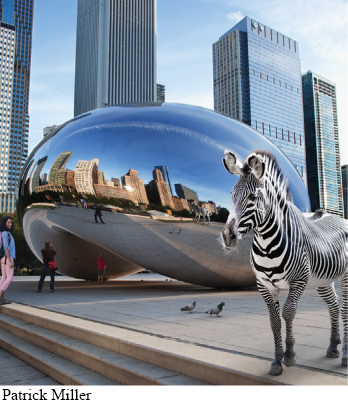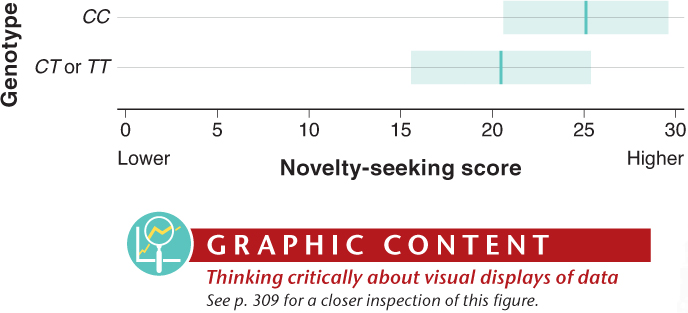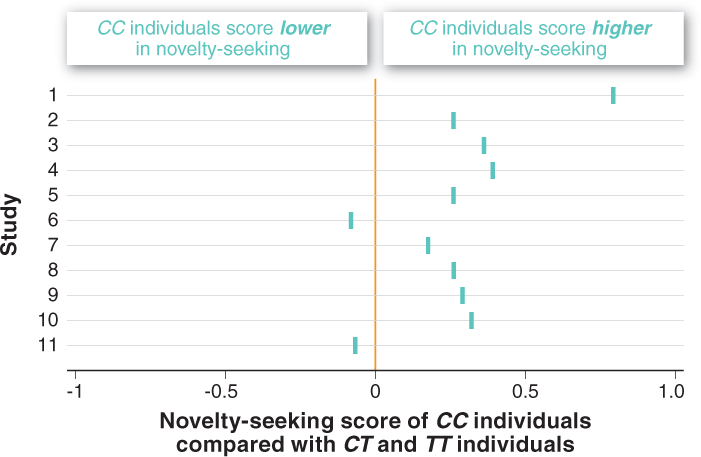KNOWLEDGE YOU CAN USE


On human chromosome 11 there is a gene called DRD4. This gene carries the instructions for building a receptor for the brain chemical dopamine within the membranes of many of your brain cells. All humans have the dopamine receptor gene DRD4 which helps control dopamine, a chemical messenger that alters the activity of the brain’s pleasure centers and influences initiative and motivation. A short sequence near the beginning of the DRD4 gene, called “promoter polymorphism–
Question 7.11
Q: Can a single gene influence your personality? In 2000, researchers reported that individuals carrying two copies of the C allele for the DRD4 gene, as opposed to zero or one copy of the C allele, were more likely to exhibit certain personality traits, particularly novelty-
By 2008, 11 studies had been published on the relationship between the CC genotype and novelty-

Researchers have subsequently reported a variety of behavioral differences among people with higher novelty-

Question 7.12
Q: Do you want your employers or insurance companies to know which alleles you carry for the DRD4 gene? Information about your genetic predisposition for diseases such as breast cancer or colon cancer can put you at risk for discrimination. Might a person be at risk for discrimination based on his or her genotype for the DRD4 gene? Should it be taken into account that the personality differences influenced by DRD4 are small, that they are affected by other genes, and that there is tremendous variation in personality traits that is unrelated to the DRD4 gene? Would you want to know what your genotype is? Why?

309